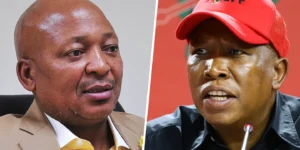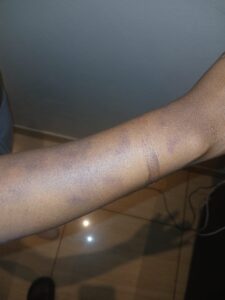By: Staff Reporter
The violence in eSwatini continues with police and protesters clashing. The latest spate of protests was triggered by the alleged killing of an unarmed man.
On Friday, the Communist Party of Swaziland (CPS) said police shot and killed a man in Nhlangano town, south of the country, in what they have described as the latest act of police violence. The man was said to have been shot at least five times, including a bullet to the head.
CPS General Secretary Thokozane Kenneth Kunene said not a single day passes in the country without an incident of state-mobilised violence against the people.
“The youth is the primary target since they occupy the Frontline position in the decisive protests against the Mswati dictatorship and his hated tinkhundla government. The police shot the man in full public view, and later concocted a story that he was wanted for dealing in marijuana. Evidence shows that there was no intention to arrest him,” he said.
Kunene added that the regime criminalises the youth of the country to justify the violence.
“Following the killing, the angry public rose in protest. The heavily armed police responded with teargas and violence, dispersing the protesters. The CPS calls for a stepped-up mobilisation that will neutralise the resolve of the state security agencies in defending the dictatorship at the expense of the lives of our people,” said Kunene.
He further claimed that there was a well-oiled and determined unit within the state security forces committed to the brutal killings in the name of keeping the dictatorship. Kunene said there was a need to take a special course against this.
“These killings are deteriorating to a genocidal lifestyle of the regime. We cannot fold our arms as if we have no power to end this. Let us build community self-defence units as a matter of urgency. After killing over 70 protesters at the end of June, following Mswati’s shoot-to-kill order, the regime continues to show no intention of restraining themselves when dealing with the public,” Kunene added.
The country’s unrest started in May when protesters took to the streets to express anger over police brutality following the death of 25-year-old university student Thabani Nkomonye. He was believed to have been killed by traffic police officers.
Aljazeera reported that the unrest then spread to the rural areas, which caught the royal regime unprepared. According to the media house, as demonstrators started to demand a wide range of political and economic reforms, the government refused calls for dialogue.







